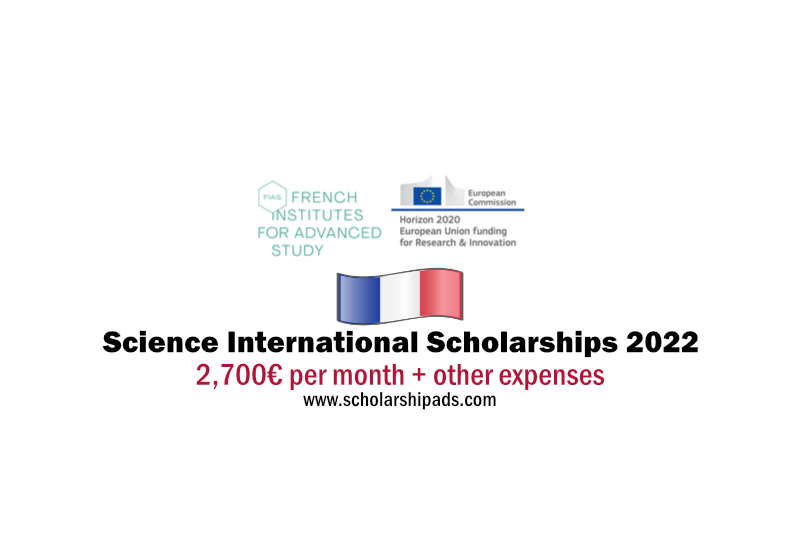The French Institutes for Advanced Study (FIAS) Fellowship Programme offers 10-month research fellowships in the six Institutes of Aix-Marseille, Loire Valley (Orléans-Tours), Lyon, Montpellier, Nantes and Paris. In Paris, fellowships will start on September 1st, 2023, and end on June 30th, 2024.
The programme welcomes applications from high-level international scholars and scientists to develop their innovative research project in France. The call is open to all disciplines in the social sciences and the humanities (SSH) and all research fields. Research projects in other sciences and in arts that propose a strong interaction and dialogue with the SSH are also eligible.
The fellows’ projects at the Paris IAS can be in any disciplines and themes in the social sciences and humanities (SSH). They must have a strong interdisciplinary dimension and aim at a major advance on their topic or in methods. An essential selection criterion is the capacity of the proposed projects to have impact beyond their discipline/field and possibly beyond academia. Projects that do not respond explicitly and convincingly to such criterion need not apply.
Priority will be given to projects addressing societal challenges or offering innovative insights into the functioning of humans and societies. Scientific excellence, interdisciplinarity, scientific innovation and societal relevance are the dimensions on which projects are evaluated.
The Paris IAS also welcomes projects at the interface between SSH and the cognitive and neuro-sciences. In particular, the program on “Brain, culture and society” will pay attention to research in society-body-mind-brain interactions having a potential impact on major societal challenges, such as physical and mental health and bioengineering, education and learning, group conflicts and violence, and adaptation to changing natural, industrial and urban environments.
The Paris IAS values collective intelligence and interdisciplinarity. Fellows are expected to contribute generously to discussions and to the communal life of the Institute, during the compulsory weekly internal seminar and beyond. They will also be requested to give at least one public lecture.
In order to ensure contacts and collaborations between fellows and the Grater Paris research community, a letter from a local research institution is requested of all applicants (see below).
